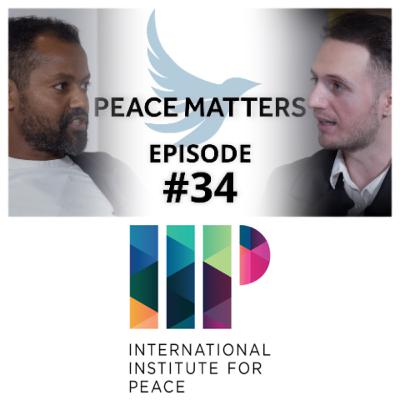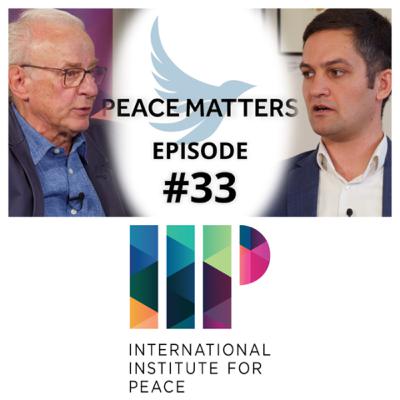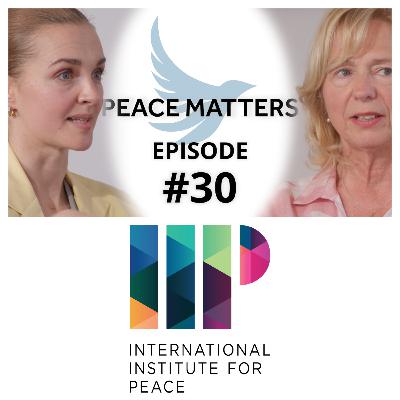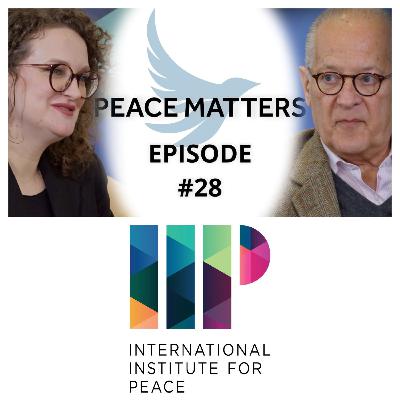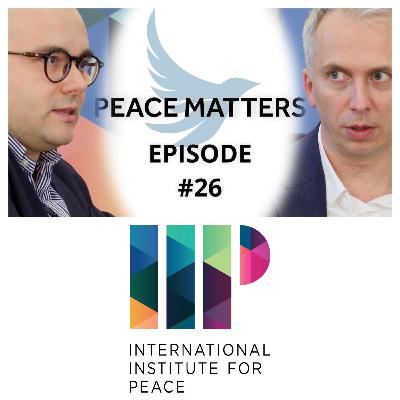Israel and Palestine: Imagining peace? Omer Bartov & Hannes Swoboda
Description
The horrific terror attack of Hamas on October 7th and the subsequent war of Israel against Gaza put the decades old conflict between Israel and Palestine back on the international stage. There is no doubt that the horrendous attack of Hamas against civilians (including the abduction of more than 250 Israelis) is a war crime and a crime against humanity. However, many – including the International Court of Justice (ICJ) - now claim that the way how Israel is waging the war against Gaza might amount to genocide – a term which has been highly politicized. Additionally to the ICJ the prosecutor of the International Criminal Court is seeking arrest warrants against the Hamas leadership and against the Prime Minister and Defence Minister of Israel. While the huge trauma of the holocaust will always be part of Jewish identity including the state of Israels identity, Palestinians are also traumatized with what they call the Nakba in 1948 and subsequent occupation and discrimination. While the Holocaust and the Nakba are not comparable, it shouldn`t deprive us to understand the sense of victimhood of others.
The role of empathy when it comes to the suffering of the other cannot be underestimated but is hardly spoken about. Why is it important to talk about the holocaust, antisemitism, genocide, occupation? What role does international law play today and how are European countries reacting on the events in the Middle East? How can a peace process between Israel and Palestine become a political paradigm again and who could push the Israeli government to end the war in Gaza? What could peace mean for Israel and Palestine? These and other questions have been discussed in our latest episode: Israel and Palestine: Imagining Peace
Guests:
Omer Bartov is an Israeli-American historian. He is the Samuel Pisar Professor of Holocaust and Genocide Studies at Brown University, where he has taught since 2000. Bartov is a historian of the Holocaust and is considered one of the world's leading authorities on genocide. Born in Israel and educated at Tel Aviv University and St. Antony's College, Oxford, Omer Bartov's early research concerned the Nazi indoctrination of the Wehrmacht and the crimes it committed in World War II, analyzed in his books, The Eastern Front, 1941-1945, and Hitler's Army. He then turned to the links between total war and genocide, discussed in his books Murder in Our Midst, Mirrors of Destruction, and Germany's War and the Holocaust. Bartov's interest in representation also led to his study, The "Jew" in Cinema, which examines the recycling of antisemitic stereotypes in film. His more recent work has focused on interethnic relations in the borderlands of Eastern Europe. Recent publications include Erased: Vanishing Traces of Jewish Galicia in Present-Day Ukraine (2007), Anatomy of a Genocide: The Life and Death of a Town Called Buczacz (2018), winner of the National Jewish Book Award, and Tales from the Borderlands: Making and Unmaking the Galician Past (2022). His many edited volumes include Shatterzone of Empires: Coexistence and Violence in the German, Habsburg, Russian, and Ottoman Borderlands (2013), Voices on War and Genocide: Three Accounts of the World Wars in a Galician Town (2020), and Israel-Palestine: Lands and Peoples (2021).
Hannes Swoboda is the President of the International Institute for Peace. He started his career in urban politics in Vienna and was elected to the European Parliament in 1996. There, he served as an MEP for eighteen years, including as the Leader of the Social Democratic Group in the Parliament from 2012 until 2014. He was particularly engaged in foreign, enlargement, and neighborhood policies. He is now president of the International Institute for Peace, the Sir Peter Ustinov Institute and the Vienna Institute for Economic Studies.
Moderation:
Stephanie Fenkart, Director of the IIP
The episode was recorded on 24 June 2024.



